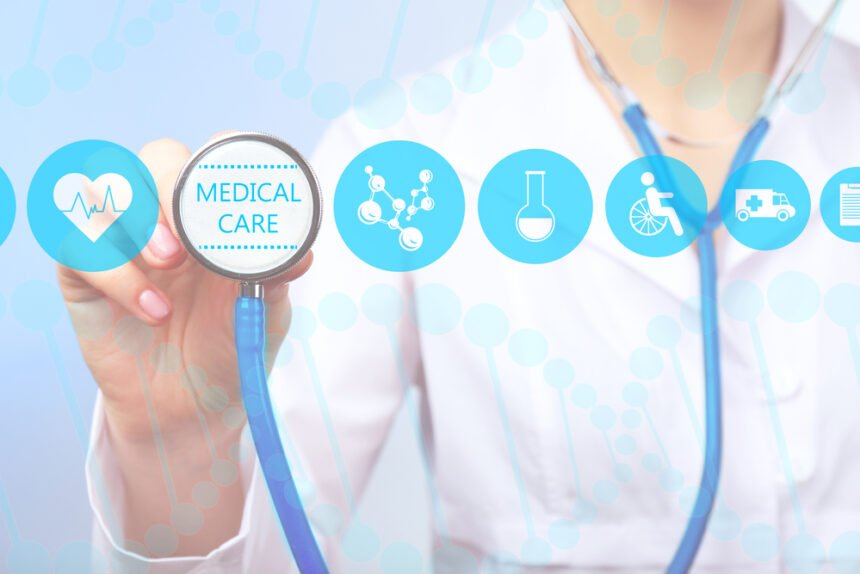The world of healthcare is constantly evolving. We’ve come a long way over the last several years, and (thankfully) we’re only going to keep progressing in the future. At first, it might seem intimidating or overwhelming trying to keep up with the changes in the healthcare world. If you have an idea of what’s coming (or likely to come), though, you may feel a little more prepared and ready to accept the changes ahead. Read on to learn more about healthcare changes that experts expect will take place in the near future.
Increased Popularity of Virtual Medicine
One of the greatest changes we’re going to see in the healthcare industry moving forward is an increase in the popularity of virtual medicine. According to Prescription Hope, virtual medicine is essential these days. People are so busy, it’s difficult to get to the doctor during office hours. As a result, lots of folks are opting out of important preventative care altogether. Virtual medicine allows patients to talk to their doctor from the comfort of their own homes. They can also receive prescriptions and undergo examinations anywhere. Many physician’s offices already offer video consultations, and more are likely to follow suit in the future.
More Women in Medicine
In addition to seeing a rise in virtual medicine, we’re also going to see a change in the type of people who are pursuing careers as doctors. The medical field has been dominated by men for years, but women are starting to take center stage. Women are likely to make up the majority of physicians soon in a variety of fields, not just fields like pediatrics and obstetrics and gynecology. These fields have already been female-dominated for a long time. We’re also going to see an increase in the number women of color — especially African American women — who are pursuing careers as physicians.
Changes in Patient Needs
In the future, the reasons people seek out a doctor’s care are going to change, too. There are a number of diseases that are on the rise and are likely to impact patients and healthcare providers in the near future, including the following:
- Sexually Transmitted Infections (STIs)
- Autism
- Obesity
- Kidney Cancer
- Liver Cancer
- Whooping Cough
- coli
New healthcare threats are always possible, of course, but these illnesses are most likely to be problematic in the coming years.
Changes in Private Insurance Models
One of the biggest complaints among Americans is the cost of healthcare. Healthcare spending has risen dramatically, and many people are going without insurance rather than trying to find a way to pay for their care. Because of this, the health insurance industry is seeing slow growth. To counteract this growth, insurance companies are going to have to get creative and look for new ways to personalize healthcare and reduce its cost. It’s likely that insurance companies are going to rule out interactive, data-driven policies that are unique to an individual’s specific healthcare needs and conditions. They may also start to incentivize healthy lifestyles and find new ways to reward those who prioritize health and fitness and are, as a result, cheaper to insure.
Increases in Automation
We’re likely going to see an increase in automation within the healthcare industry, too. It might seem like science fiction now, but it’s actually not that far off. Experts predict that, in a few years, people will have specialized devices that monitor their health for them in real-time and feed that information to an algorithm. That information can then be used to determine prescription dosages and specific changes patients should make to diet and lifestyle. These kinds of devices already exist on a smaller scale (take the Fitbit and the Apple Watch, for example), but they’re likely going to become much more advanced and personalized in the future.
Increased Privacy Needs
With the increase in tech usage within the healthcare field, there will also come an increased need for privacy. Physician’s offices and hospitals are going to have to take extra care to keep patient data safe and avoid HIPAA violations. Privacy laws will likely change int he future, too, to reflect technological advancements and keep up with the ever-evolving healthcare field.
Continued Spreading of Fake News
Unfortunately, we’re also likely to see a continued spread of “fake news” and misinformation within the healthcare sphere. The “anti-vaxxer” movement, for example, will probably continue to gain momentum in the coming years, much to the chagrin of medical experts who have debunked the myths regarding vaccines and autism. Because it’s so easy to spread information (and misinformation) these days, patients will have to get better at discerning fact from fiction. Physicians and other healthcare experts will also have to improve their ability to share correct information and broadcast it on a larger scale to keep their patients safe.
New Healthcare Apps
There are already tons of health and nutrition apps on the market these days, but they?re going to become even more advanced in the future. People will be able to use apps for many purposes. For example, they?ll be able to make sure they?re picking the right diet, like the revolyn keto burn, if you’re goal is to lose weight (as opposed to the more generic meal plans that apps use these days). AI is also expected to be an important part of healthcare apps. It will help to provide users with highly specific and personalized recommendations.
Learn About New Healthcare Changes
As you can see, there are a lot of healthcare changes that we’ll start seeing in the future. We’re going to start seeing more women in medicine and more access to healthcare for low-income individuals. We’re also going to see significant advances in healthcare technology. The future is certainly bright for patients and healthcare professionals alike. Do you want to be informed about other changes to the healthcare landscape as they occur? If so, be sure you check out the eHealth section of our website. This section is regularly updated with the latest healthcare news. It’s also full of tips that will help you make the most of these healthcare updates.







